During their first official audience with President John Dramani Mahama since his assumption of office in January 2025, the Bishops urged the declaration of a limited state of emergency in the worst-affected areas to suspend all mining operations temporarily, deploy military engineering units for land reclamation, and restore lawful governance.
“What began as a subsistence activity has grown into a threat of national proportion,” said Most Rev. Matthew K. Gyamfi, President of the GCBC. “Our rivers are dying, our forests are vanishing, and our moral conscience is being buried under mud.”
The Bishops cited official reports showing that over 4,000 hectares of Ghana’s forest cover have been destroyed in the past two years alone due to illegal mining. Major rivers such as the Pra, Ankobra, Offin, and Birim, once sources of life and livelihood, have turned into toxic channels, heavily polluted with mercury and cyanide used in unregulated gold extraction.

Communities in mining zones face skyrocketing health risks, including skin diseases, kidney damage, and respiratory illnesses caused by contaminated water and air. Farmlands have been rendered infertile, forcing many families to abandon agriculture, their primary source of income, and worsening food insecurity.
But beyond the physical destruction, the Bishops warned of deeper social and moral consequences. They pointed to the rise in child labour, school dropouts, prostitution, and criminality in galamsey-prone regions, where vulnerable youth are lured into the illicit trade in search of quick money.
“This is not just a matter of enforcement,” Archbishop Gyamfi emphasized. “It is a question of foresight, integrity, and justice for future generations.”
The GCBC, which has been actively advocating on this issue for over a decade, presented a comprehensive, multi-pronged strategy aimed at tackling the illegal mining crisis from both enforcement and development perspectives.
First among their proposals is a moratorium on new artisanal and small-scale mining licenses. This, they argue, is necessary to allow for a full assessment of the environmental and social impacts of mining operations currently underway. Such a pause would also offer the government space to re-evaluate the legislative framework that has enabled unregulated exploitation.

The Bishops also called for the formation of district-level mining task forces, composed of civil society actors and Church representatives, to monitor local operations, report abuses, and ensure transparency at the community level. These task forces would serve as watchdogs, holding operators accountable and strengthening citizen participation in environmental governance.
To support effective regulation, the GCBC recommended independent environmental audits and the public release of legal compliance records for all current mining concessions. They stressed that transparency is key to restoring public trust and deterring corrupt practices in the sector.
Additionally, the Bishops proposed the enforcement of mandatory reclamation bonds for all mining operators. These funds would be used to restore degraded lands. They also called for the establishment of an Environmental Restoration Fund, to be co-managed by the State, the Church, and traditional authorities, ensuring a shared moral and civic responsibility for environmental stewardship.

Recognising that many engage in illegal mining out of economic desperation, the Bishops emphasized the need for sustainable alternatives. They urged investment in alternative livelihoods, including agroforestry, aquaculture, vocational training, and eco-tourism, especially in communities most affected by mining-related damage.
Finally, the GCBC advocated for the deployment of a blockchain-based tracking system to monitor gold and mineral flows from source to export. This, they believe, would curb smuggling, improve legal compliance, and help recover significant revenue lost through illicit trade.
The Bishops stressed that while enforcement is necessary, it must be accompanied by credible and sustainable alternatives for those driven into illegal mining by poverty and desperation.
As one of the most respected moral voices in the country, the Catholic Church in Ghana has consistently used its platform to draw attention to the galamsey crisis. In 2017 and 2019, the GCBC issued communiqués demanding action. In recent years, Catholic parishes and schools have also launched local awareness campaigns and tree-planting drives in affected dioceses.
Now, standing once more before the highest office in the land, the Bishops are hoping this moment marks a turning point.
“Mr. President,” Archbishop Gyamfi concluded, “we cannot afford to lose another river, another forest, another generation.”




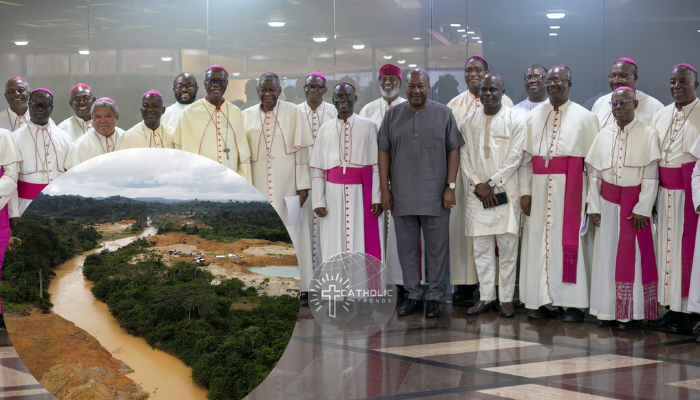

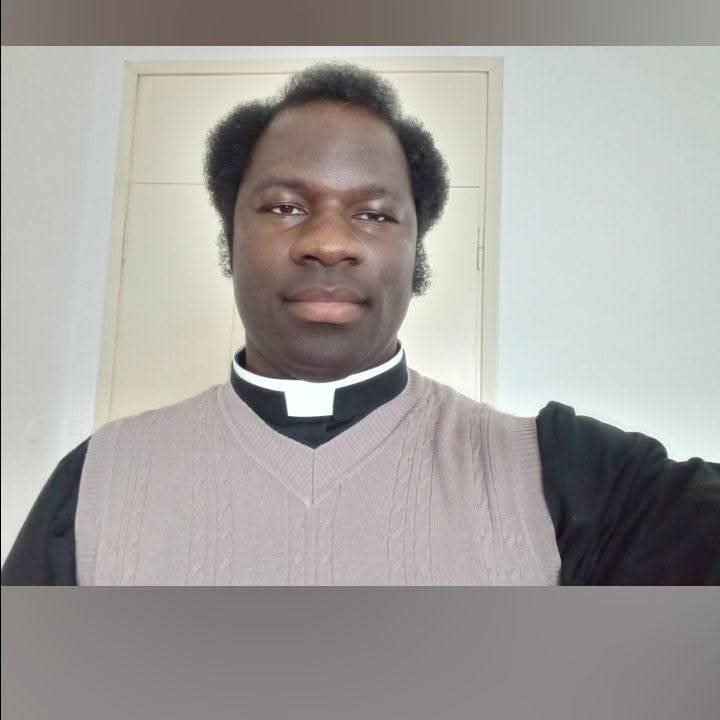
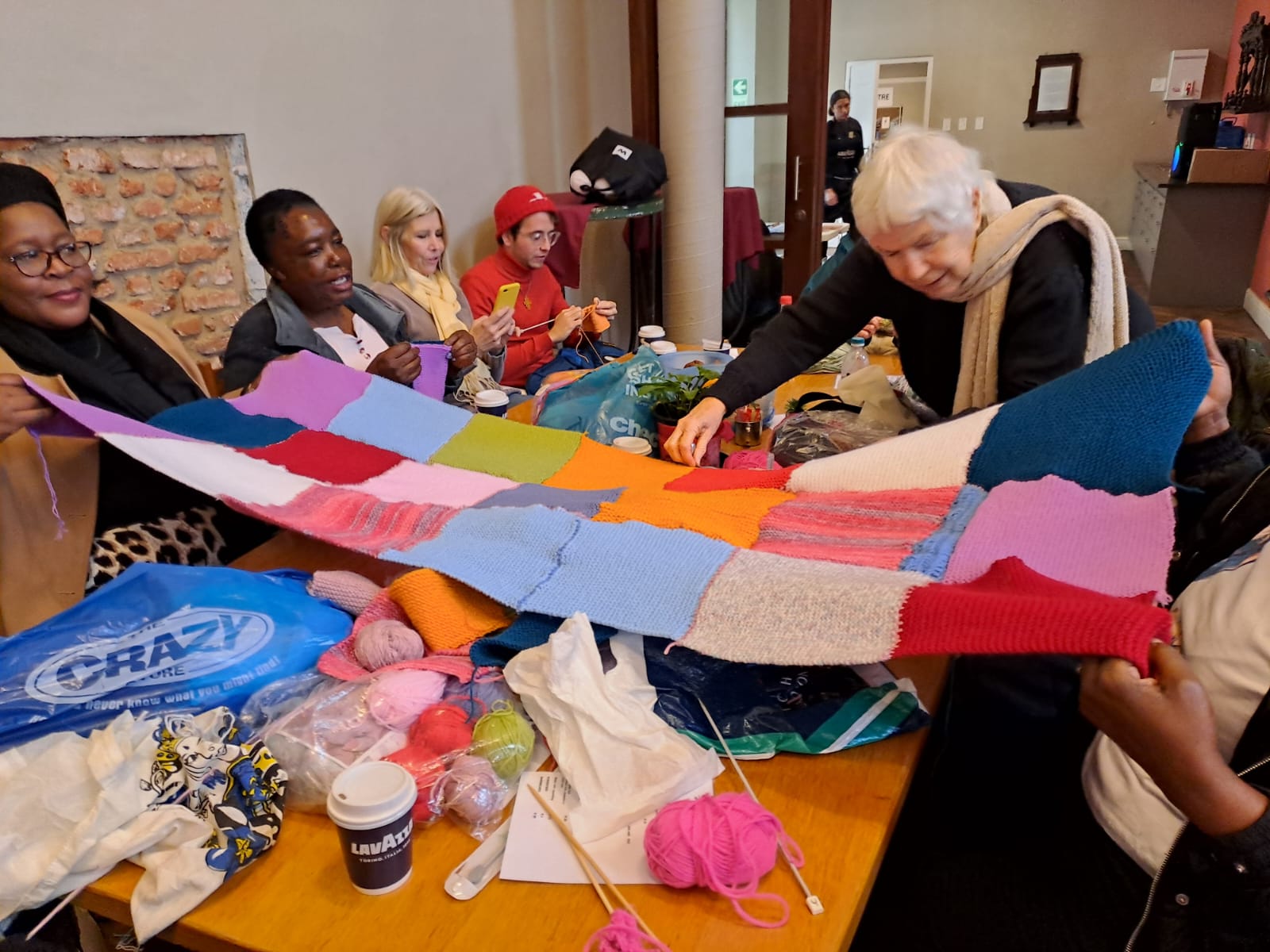
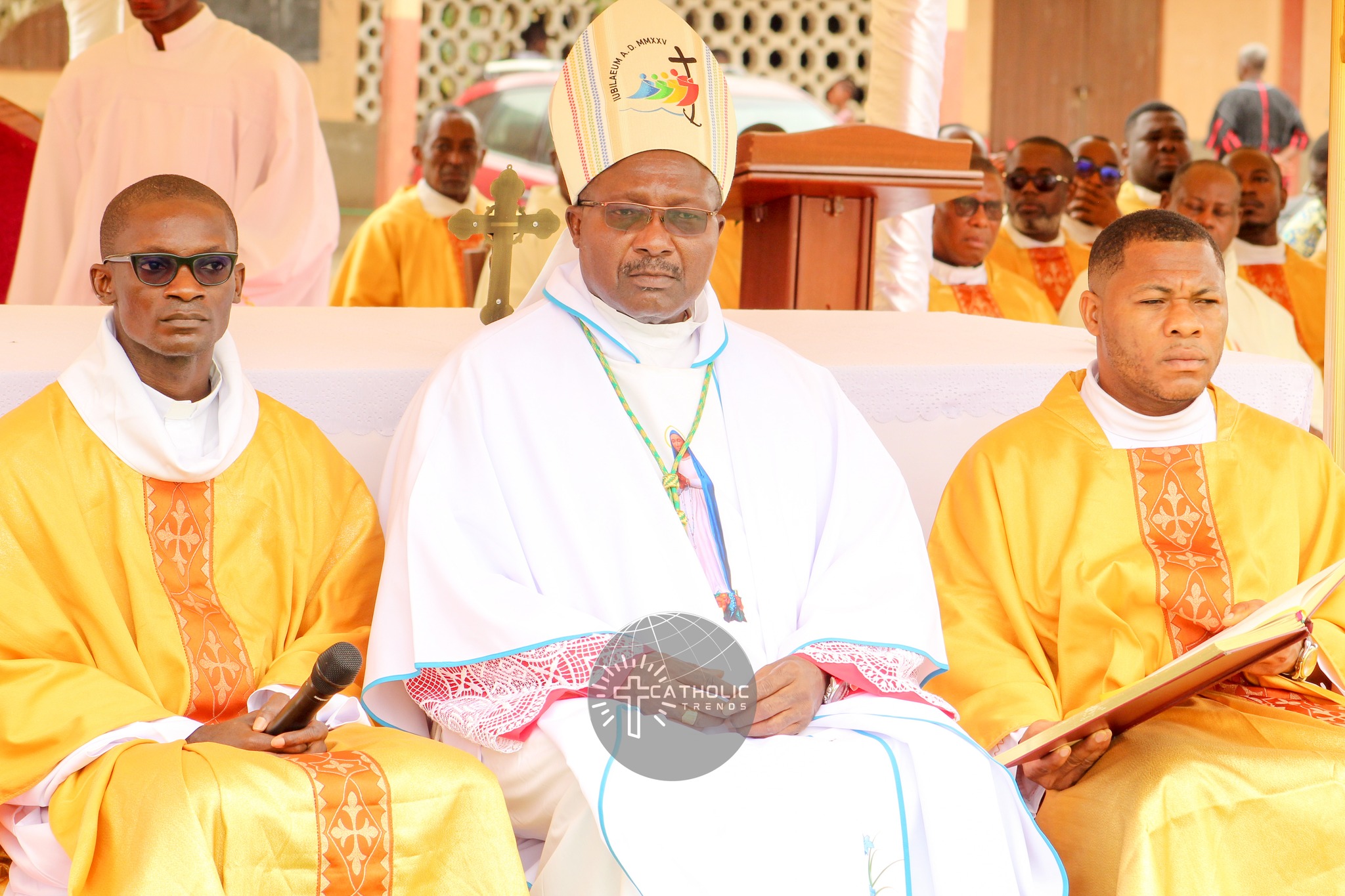


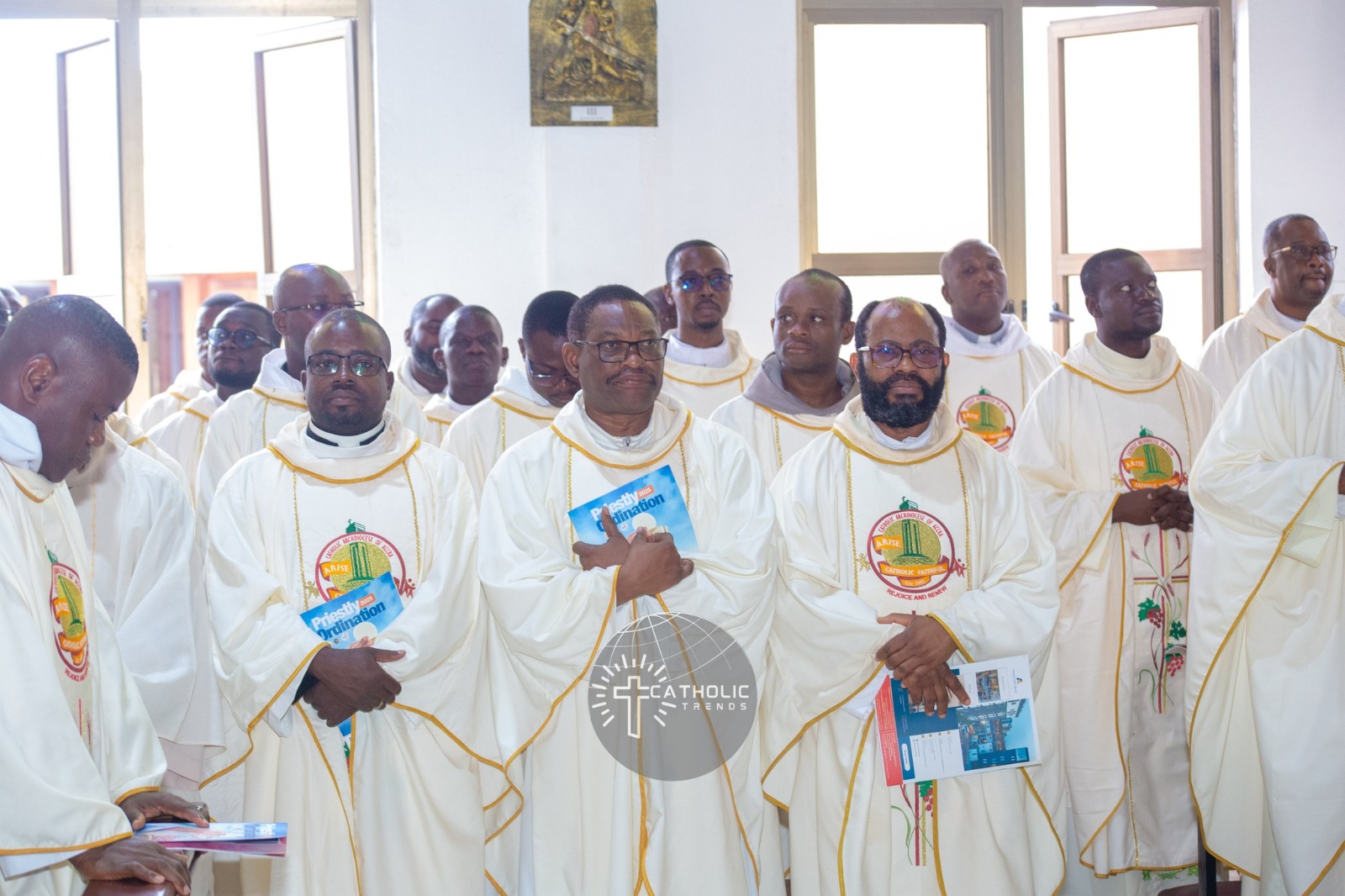

![[Article] Beginning Holy Matrimony without the bride and, or the groom? – Part 1](https://catholic-trends.com/wp-content/uploads/2025/05/4.jpg)


![[Reflection] Jubilee Year : Awaken and allow hope to flourish](https://catholic-trends.com/wp-content/uploads/2025/08/Screenshot-2025-08-12-192412.png)

Discussion about this post